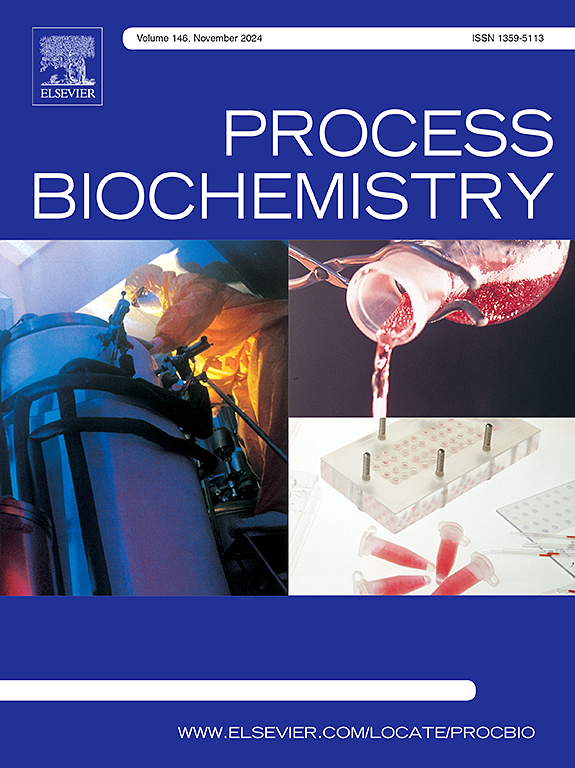Continuous production of tagatose through isomerization of galactose using a tubular reactor filled with eggshell powder
IF 4
3区 生物学
Q2 BIOCHEMISTRY & MOLECULAR BIOLOGY
引用次数: 0
Abstract
Galactose solution was passed through a tubular reactor filled with eggshell powder, and isomerization of galactose to rare sugars was continuously performed under subcritical conditions at 120–150°C with the reaction time (RT) between 3–37 min. Isomerization produced rare sugars (tagatose, talose, and sorbose). At 135°C and RT= 6 min, the maximum yield of tagatose (14.5 %) was achieved. Compared to this result, the yield of tagatose was lower at 150°C or 120°C, and the yield of byproducts was also especially lower at 120°C. However, when RT was prolonged to 37 min at 120°C, the yield of tagatose improved to about 10 %, while the formation of byproducts was kept under control. Furthermore, during the continuous use of the reactor (up to 30 h), the yield of byproducts significantly decreased with increasing usage time. Therefore, it was suggested that continuous contact of eggshell with the reaction mixture may change properties of the powder and affect the isomerization behavior of galactose. Although the eggshell powder became light brown after use for the reaction, an apparent change of the surface could not be observed by scanning electron microscope.
用装满蛋壳粉的管状反应器通过半乳糖异构化连续生产塔格糖
将半乳糖溶液通过填充蛋壳粉的管状反应器,在120-150℃的亚临界条件下,反应时间(RT)在3-37 min之间连续进行半乳糖异构化成稀有糖。异构化产生稀有的糖(塔格糖、塔格糖和糖)。在135℃和RT= 6 min条件下,塔格糖的产率最高(14.5 %)。与此结果相比,在150°C和120°C时塔格糖的产率较低,副产物的产率在120°C时尤其低。而在120°C下,当RT延长至37 min时,塔格糖的产率提高到约10 %,同时副产物的形成得到控制。此外,在反应器连续使用期间(高达30 h),副产物的产率随着使用时间的增加而显著降低。因此,蛋壳与反应混合物的持续接触可能会改变粉末的性质,影响半乳糖的异构化行为。虽然蛋壳粉用于反应后呈浅棕色,但扫描电镜下观察不到明显的表面变化。
本文章由计算机程序翻译,如有差异,请以英文原文为准。
求助全文
约1分钟内获得全文
求助全文
来源期刊

Process Biochemistry
生物-工程:化工
CiteScore
8.30
自引率
4.50%
发文量
374
审稿时长
53 days
期刊介绍:
Process Biochemistry is an application-orientated research journal devoted to reporting advances with originality and novelty, in the science and technology of the processes involving bioactive molecules and living organisms. These processes concern the production of useful metabolites or materials, or the removal of toxic compounds using tools and methods of current biology and engineering. Its main areas of interest include novel bioprocesses and enabling technologies (such as nanobiotechnology, tissue engineering, directed evolution, metabolic engineering, systems biology, and synthetic biology) applicable in food (nutraceutical), healthcare (medical, pharmaceutical, cosmetic), energy (biofuels), environmental, and biorefinery industries and their underlying biological and engineering principles.
 求助内容:
求助内容: 应助结果提醒方式:
应助结果提醒方式:


